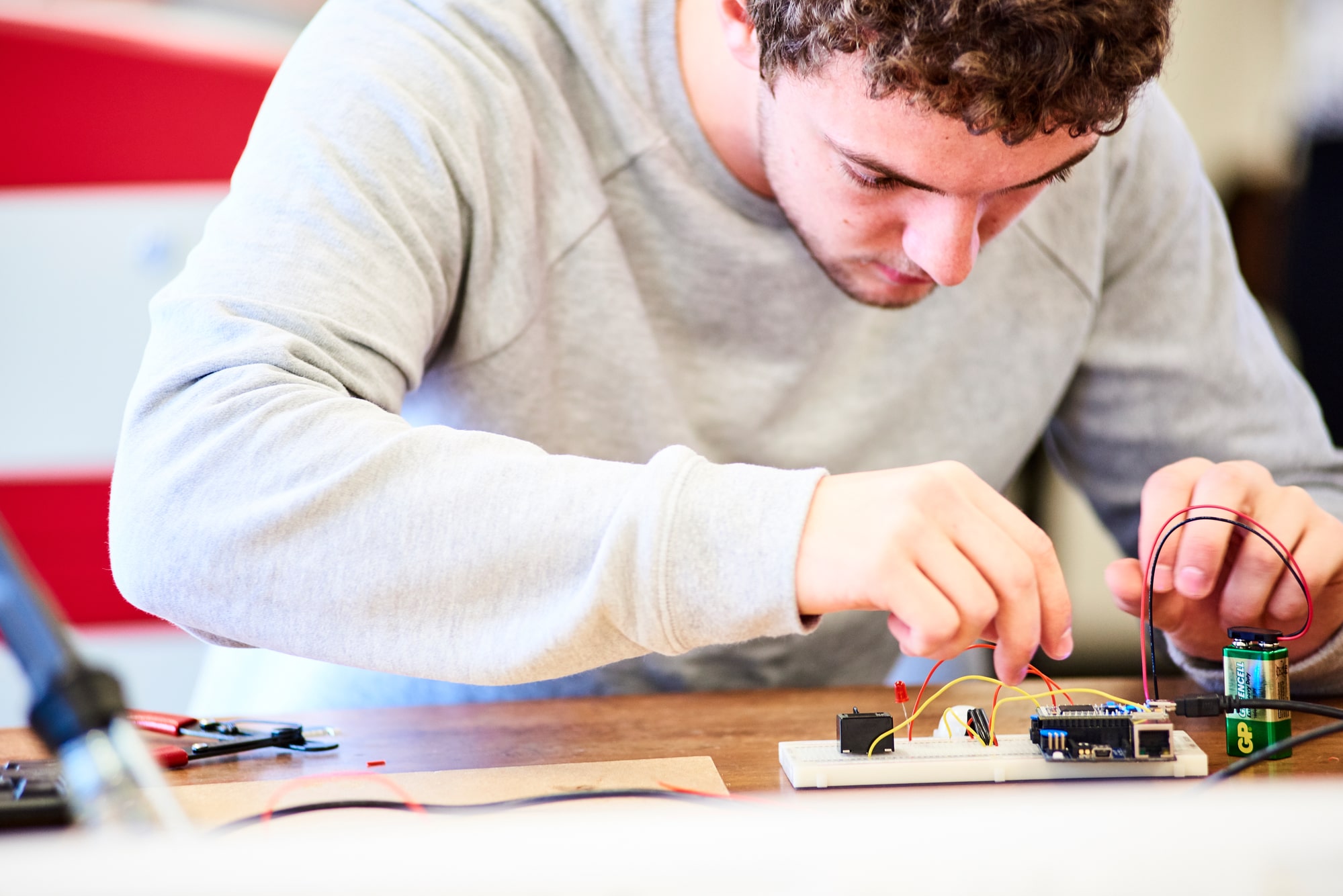How to gain skills and experiences
Gaining skills and experience whilst you study is always important for reaching your next step. Here you will find lots of ideas for ways to develop your skills and gain experience relevant to engineering. When writing applications to jobs or courses, mention relevant experiences, explain the skills you have gained from them and how they relate to the role you are applying for.

Take Part in a Competition or Challenge
There are many STEM-themed competitions and challenges open to young people. These are a great way to try out designing, creating, and coding. There may also be an opportunity to meet engineers and network with industry in some cases. Below is a list of STEM competitions and challenges to consider:
- Industrial Cadets by the EDT – 20-50 hours, Year 8-12
- CREST Award by the British Science Association – 10-70 hours, Year 7-12
- FIRST Lego League Challenge by the IET – Year 5-11
- Vex Robotics Competition – up to Year 10
- Big Bang Competition – Year 11-12
- If you were an engineer, what would you do? Competition – Up to Year 12
- Formula 24 Challenge by Greenpower – Year 7-11
Volunteer
Volunteering your time to help is a fantastic way to boost your skills, gain experience and meet new people. You might not immediately be able to think of volunteering opportunities linked with engineering but they do exist. Here are a few examples:
- Repair/Fix It Café – help people repair household items. This can be a great experience for building problem-solving skills. You will also develop your knowledge of technology and mechanics.
- Build Theatre Sets – many community theatres and even schools rely on volunteers to design and build their sets for plays and musicals. This could be an opportunity to develop design and practical skills.
- Science Centres and Transport Museums – share your passion for engineering at your local museum. See if there are opportunities for you to help in exhibits or events.
You can find lots of volunteering opportunities on:
Attend Events
One day events can be a great way to gain an insight into engineering and try out some new skills. Some suggested events you could explore are:
- Public lectures (all ages) – many universities offer free lectures on a variety of topics. Look out for engineering talks at your local university. Click here to view upcoming public lectures at Newcastle University.
- Girls into Electronics by UKESF (Year 11-13 girls) – different universities across the country host this event. Students can find out more about studying electronics and meet female engineers.
- Faraday Challenge Days by the IET (Year 8) – tackle a real-world challenge in one day, either in school or at an organised event.
- Newcastle University Outreach Events – meet out engineers and try out various STEM activities at our outreach events. For information on upcoming events, click here.
Learn to Code
Programming and coding can be a useful skill in engineering and one you can learn at school or at home, if you have access to a computer. There are lots of free beginner resources available online. If you are able to access a Micro:bit, Arduino or Raspberry Pi plus some components you could have a go at creating your own devices.
Visit a Makerspace
A Makerspace is a physical space with tools, resources, and machines where people can create, build and explore. Makerspaces can be great places to try out new tools like 3D printers and laser cutters that you might not otherwise have access to. It can also be an opportunity to meet and learn from other people interested in engineering.
Join or set up an Engineering Club
If your school or college has an Engineering Club, this can be a great way to gain some experience in engineering projects. You’ll likely hear about other opportunities from the members too. If your school doesn’t have one, why not speak to a teacher about setting one up yourself. You can find ideas for practical projects online that you could do with your classmates. You could even volunteer to teach younger students how to code or use different tools.
Help Scouts and Guides achieve their science and engineering badges
If you are already a member of scouts, guides, or a similar organisation, aim to achieve your science or engineering badges. This is a great achievement and a way to gain experience. If you’re not involved in any of these groups, try contacting your local group to offer help to run a session to help them work towards specific badges. You can find information about the badges available and what it takes to achieve them online.
Read books on engineering
Reading popular books around engineering can be a way to gain an insight into the field and the challenges that engineers face. It also demonstrates that you have a clear interest in the topic and may even inspire your future career choices. Some books to consider reading are:
- The Design of Everyday Things by Donald Norman
- The Gecko’s Foot: How Scientists are Taking a Leaf from Nature’s Book
- Think Like an Engineer by Guru Madhavan
- Engineers Making a Difference by Dr. Shini Somara
Work Experience
Spending a week working in an engineering company can be a valuable experience. You will have the chance to gain new skills, meet engineers and make connections. It can sometimes be difficult to find a work experience placement. Don’t be afraid to look up engineering companies if your area and start reaching out. Career advisors and teachers in your school or college may also be able to help you find the right placement.
Build transferable skills
Don’t forget about transferable skills. These are skills that you might have developed from a variety of different experiences, but that are still useful skills for an engineer to have. For example:
- Teamwork is important in many engineering roles. You might have developed teamwork skills from a group project or from playing for a sports team.
- Creativity is useful in design engineering. You may show your creative skills through hobbies like art, drawing and crafting.
- Problem-solving is a vital skill for engineers. You may have developed this skill through part-time work or volunteering.
You can still demonstrate these skills on your CV, personal statement, application, or interview, even if the experience you gained them through doesn’t directly relate to engineering.
Pathways into Electrification
From A Levels to Apprenticeships, discover the many different pathways into engineering and find out which is right for you.
Degree Apprenticeships
An engineering apprenticeship is a hands-on and work-based route into your future career. Find out more about this study route.
